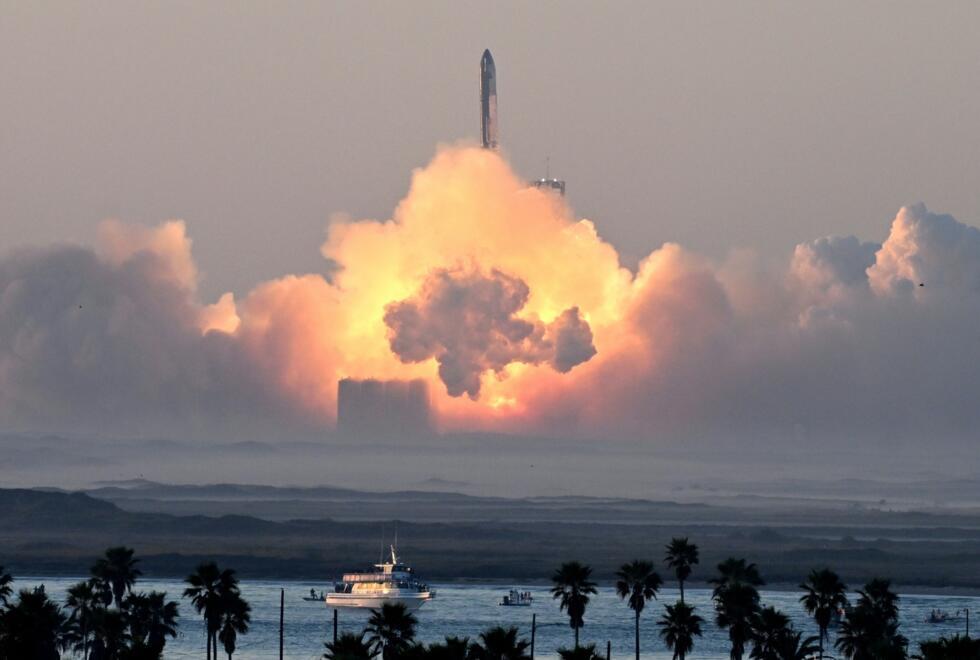US President Donald Trump signed an executive order on Wednesday to streamline federal regulation governing commercial rocket launches, a move that could benefit billionaire Elon Musk's SpaceX and other private space ventures.
Trump's order, among other things, directs the US transportation secretary to eliminate or expedite environmental reviews for launch licenses administered by the Federal Aviation Administration (FAA), the White House said in a statement.
The declaration also calls on the secretary to do away with "outdated, redundant or overly restrictive rules for launch and reentry vehicles".
"Inefficient permitting processes discourage investment and innovation, limiting the ability of US companies to lead in global space markets," the executive order states.
'Musk was Trump's lightning rod', politics professor says as billionaire leaves DOGE
To display this content from YouTube, you must enable advertisement tracking and audience measurement.
One of your browser extensions seems to be blocking the video player from loading. To watch this content, you may need to disable it on this site.

04:24
The executive order, which said it aimed to "substantially" increase the number of space launches in the United States, was described by an environmental group as "reckless".
Since returning to the White House in January, Trump has talked up several space missions including sending humans to the Moon and Mars.
The Moon and Mars missions are planned to get a ride on the massive Starship rocket of Musk's private firm SpaceX.
SpaceX, though not mentioned by name in Trump's order, easily leads all US space industry entities, including NASA, in the sheer number of launches it routinely conducts for its own satellite network, the US space agency, the Pentagon, and other enterprises.
Its various-sized rockets blasted off more than 130 times last year – a number that will likely rise following Trump's executive order.
But Starship has had a series of setbacks, with its latest routine test ending in a fiery explosion in June.

"It is the policy of the United States to enhance American greatness in space by enabling a competitive launch marketplace and substantially increasing commercial space launch cadence" by 2030, the order read.
The change could well benefit Musk, who has long advocated for deregulation of the space industry. The world's richest man was previously a close advisor to Trump before the pair had a dramatic, public falling out in July.
Musk has viewed FAA oversight as a hindrance to his company's engineering culture, considered more risk-tolerant than many of the aerospace industry's more established players.
SpaceX's flight-test strategy is known for pushing spacecraft prototypes to the point of failure, then fine-tuning improvements through frequent repetition.
This has appeared to run afoul at times with the FAA's mission of safeguarding the public and the environment as it exercises its regulatory jurisdiction over commercial spaceflight.
SpaceX has been repeatedly criticised over the environmental impact at the sites where Starship, the largest and most powerful rocket in history, blasts off.
Earlier this year, the FAA grounded Starship test flights for nearly two months after back-to-back post-launch explosions rained debris over Caribbean islands and forced dozens of airliners to change course. The FAA ended up expanding the aircraft hazard zone along Starship's launch trajectories before licensing future flights.
The US-based nonprofit Center for Biological Diversity said Trump's new executive order "paves the way for the massive destruction of protected plants and animals".
"This reckless order puts people and wildlife at risk from private companies launching giant rockets that often explode and wreak devastation on surrounding areas," the center's Jared Margolis said in a statement.
Musk's dreams of colonising Mars rely on the success of Starship, and SpaceX has been betting that its "fail fast, learn fast" ethos will eventually pay off.
The FAA approved an increase in annual Starship rocket launches from five to 25 in early May, stating that the increased frequency would not adversely affect the environment.
(FRANCE 24 with AFP and Reuters)











 English (US) ·
English (US) ·